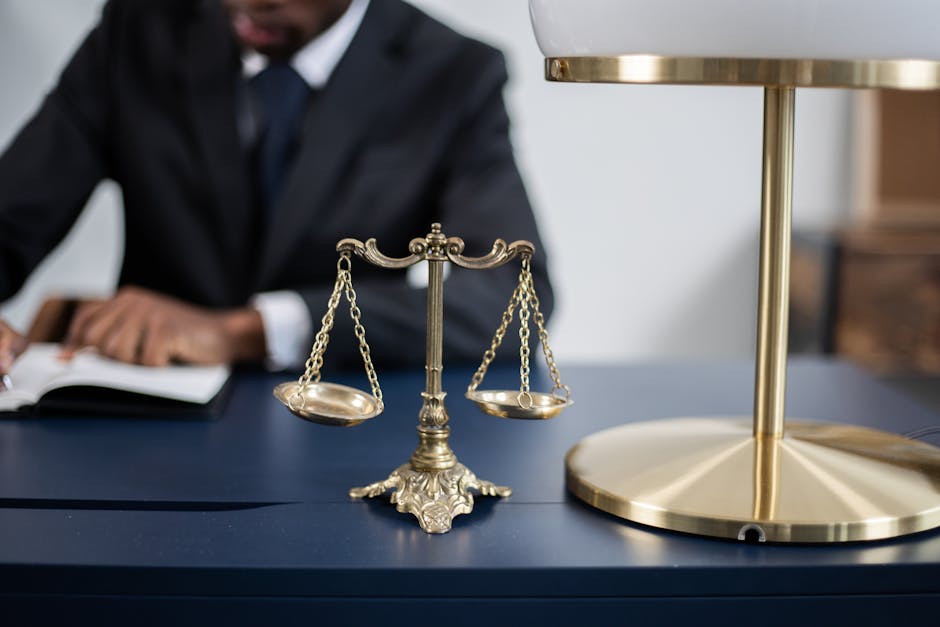Navigating Digital Avatar Rights: Your Guide to Virtual Law
In the age of the metaverse, where digital avatars represent your online identity, understanding the legal rights and responsibilities surrounding them is more important than ever. As technology continues to evolve at a rapid pace, legal frameworks are struggling to keep up. So, what does that mean for you - the user, the developer, or the creator of digital avatars? Buckle up as we delve into the intricate legal implications of avatar ownership, identity, and more in virtual worlds.
The Rise of Digital Avatars in the Metaverse

Digital avatars are no longer mere representations of virtual interactions; they've evolved into a complex intersection of technology, law, and personal identity. They serve as integral components of virtual environments, from social media platforms to immersive gaming landscapes. As you interact with these avatars, whether as a user or developer, understanding their legal implications becomes essential.
What Are Digital Avatars?

Digital avatars can be anything from 2D cartoon representations to highly detailed 3D models. They're not just characters in a game; they can signify personal expression, identity, and even economic value. As businesses and users invest significant time and money into these avatars, questions arise: Who legally owns the rights to these digital representations? How can users protect their avatars from misuse?
The Legal Landscape: Who Owns Your Avatar?

Ownership rights over digital avatars can be as murky as the virtual worlds they inhabit. The legal principles that govern these rights can vary widely depending on factors like platform terms of service, intellectual property laws, and user agreements.
Intellectual Property Rights

Most digital avatars fall under copyright law, as they often involve creative expressions. Based on this principle, you might assume that you hold rights over an avatar you've created—however, this isn’t always the case. Often, platforms retain rights to user-generated content, which means they can exploit, modify, or delete your avatar without your consent.
For a deeper understanding of these issues, you might want to read this guide on protecting your creations in virtual reality.
Misuse and Legal Recourse

Despite the creative ownership some users may feel, avatars can also be prone to misuse—be it through unauthorized use, deepfake technology, or harassment. What's your legal recourse if someone clones your avatar or uses it maliciously? Here’s where the challenge lies.
Identifying Legal Violations

-
Copyright Infringement: If someone uses your avatar without permission, they may be violating copyright laws. Document any unauthorized uses of your avatar and gather evidence.
-
Defamation: If someone misrepresents you using your avatar, this could be grounds for a defamation lawsuit, especially if it harms your real-life reputation.
-
Digital Harassment: If you experience online harassment through your avatar, it’s crucial to keep a record of evidence for any legal actions you might take against the offender.
For guidance on navigating harassment issues in virtual spheres, check out this article on emotional lawyering.
The Role of Terms of Service and User Agreements

Digital platforms often have terms of service (TOS) agreements that you must accept to create and use your avatar. Familiarizing yourself with these documents is crucial, as they often dictate the ownership rights and rules of engagement.
Important Aspects of TOS

-
User Rights: Understand what rights you are granting to the platform. This can impact your ownership of the avatar and its associated content.
-
Liability Clauses: These clauses might absolve the platform from any responsibility regarding avatar misuse. If your avatar is involved in a legal dispute, knowing this section is vital.
-
Dispute Resolution: Many TOS agreements specify how disputes will be resolved, often through arbitration rather than traditional legal channels.
Emerging Regulations Surrounding Digital Avatars

As our world increasingly shifts into digital spaces, lawmakers are grappling with how to create relevant legal frameworks. Different countries are approaching the issue in varied ways. Some nations may legislate specific protections for avatars and digital identities, while others might lag.
International Perspectives on Avatar Law

-
United States: In the U.S., existing intellectual property laws are being analyzed and adapted to handle digital avatars. This can lead to innovative court cases that seek to define user rights in the realm of digital expression and technologies.
-
European Union: The EU has historically been more proactive in setting privacy standards, such as GDPR. This may influence legal considerations surrounding avatars, particularly in matters of data protection and misuse.
For a more global view, consider reading about navigating international legal issues that may involve avatars across borders.
The Role of User Advocacy

Advocacy groups are increasingly lobbying for more defined rights for avatar creators. As these organizations gain traction, they could fundamentally alter the landscape of digital avatar rights. Keeping an eye on these developments can help you stay informed about potential enhancements to avatar ownership rights.
Practical Steps for Protecting Your Avatar
With the complexity of digital ownership in mind, here are some practical steps you can take to protect your avatar and assert your rights:
1. Keep Records
Maintain records of all communication, terms of service agreements, and any files associated with your avatar. This documentation is crucial should you need to assert your rights.
2. Know Your Platform
Familiarize yourself with the platform's policies regarding avatar ownership. If the TOS seems unfavorable, you might want to reconsider your engagement.
3. Seek Legal Advice
If you anticipate any legal issues involving your avatar, consulting a legal expert familiar with digital laws can lend you a significant advantage.
The Future of Digital Avatars and Law
As technology continues to advance, so too will the nature of law surrounding digital avatars. Emerging trends, including the use of blockchain technology for more secure ownership verification, hint at a future where avatar rights may be significantly more defined and secure.
Potential Trends in Avatar Law
-
Blockchain Technology: By leveraging blockchain, digital avatars could have verified ownership records, minimizing disputes over rights and usage.
-
Increased Regulation: As the use of avatars becomes more commonplace, an uptick in regulatory measures may occur, offering users greater protection.
The Intersection of Law and Identity
Understanding the legal ramifications of digital incarnations raises questions not just of ownership but of personal identity. Within virtual worlds, our avatars often reflect our aspirations or selves—and the implications are deep.
Implications for Personal Wellness
As you navigate these virtual landscapes, it's essential to remain aware of your mental well-being. Engaging with avatars and the legal systems governing them can often breed stress, uncertainty, and emotional distress. For insights on managing this stress, consider exploring legal stress management techniques.
Final Thoughts
Digital avatars are rapidly becoming a vital asset and representation of identity in our increasingly virtual world. Staying informed about your rights regarding these avatars empowers you to navigate the complexities of virtual law with confidence. Whether you're a user, creator, or developer, understanding the legal landscape surrounding digital avatars is crucial as we surge toward an uncertain yet exciting digital future.
As the world of virtual avatars continues to grow and evolve, staying educated and protecting your digital identity will only become more important. Be proactive, advocate for your rights, and immerse yourself in the conversations shaping this burgeoning field.



